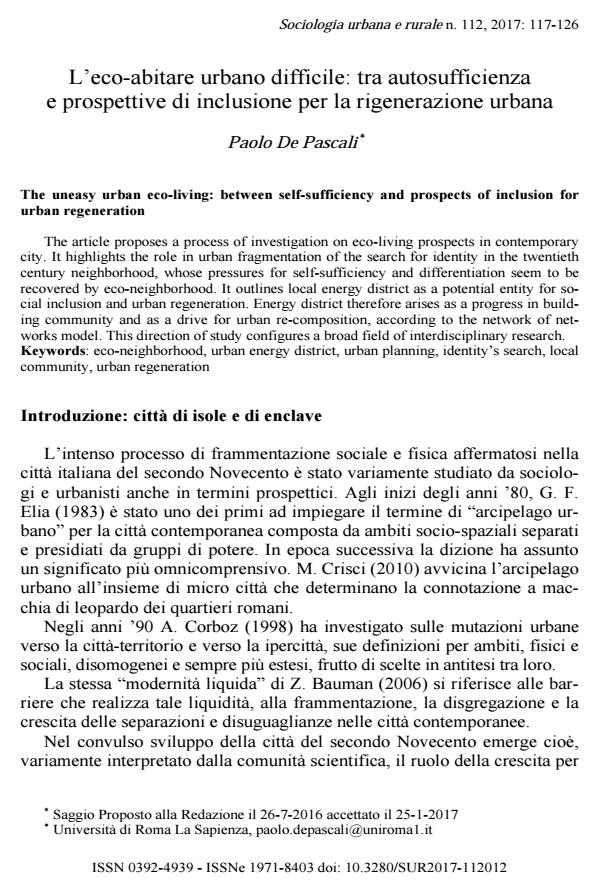The uneasy urban eco-living: between self-sufficiency and prospects of inclusion for urban regeneration
Journal title SOCIOLOGIA URBANA E RURALE
Author/s Paolo de Pascali
Publishing Year 2017 Issue 2017/112
Language Italian Pages 10 P. 117-126 File size 161 KB
DOI 10.3280/SUR2017-112012
DOI is like a bar code for intellectual property: to have more infomation
click here
Below, you can see the article first page
If you want to buy this article in PDF format, you can do it, following the instructions to buy download credits

FrancoAngeli is member of Publishers International Linking Association, Inc (PILA), a not-for-profit association which run the CrossRef service enabling links to and from online scholarly content.
The article proposes a process of investigation on eco-living prospects in contemporary city. It highlights the role in urban fragmentation of the search for identity in the twentieth century neighborhood, whose pressures for self-sufficiency and differentiation seem to be recovered by eco-neighborhood. It outlines local energy district as a potential entity for social inclusion and urban regeneration. Energy district therefore arises as a progress in building community and as a drive for urban re-composition, according to the network of networks model. This direction of study configures a broad field of interdisciplinary research.
Keywords: Eco-neighborhood, urban energy district, urban planning, identity’s search, local community, urban regeneration
- Resilient Planning and Design for Sustainable Cities Francesca Perrone, Dalila Riglietti, pp.441 (ISBN:978-3-031-47793-5)
Paolo de Pascali, L’eco-abitare urbano difficile: tra autosufficienza e prospettive di inclusione per la rigenerazione urbana in "SOCIOLOGIA URBANA E RURALE" 112/2017, pp 117-126, DOI: 10.3280/SUR2017-112012